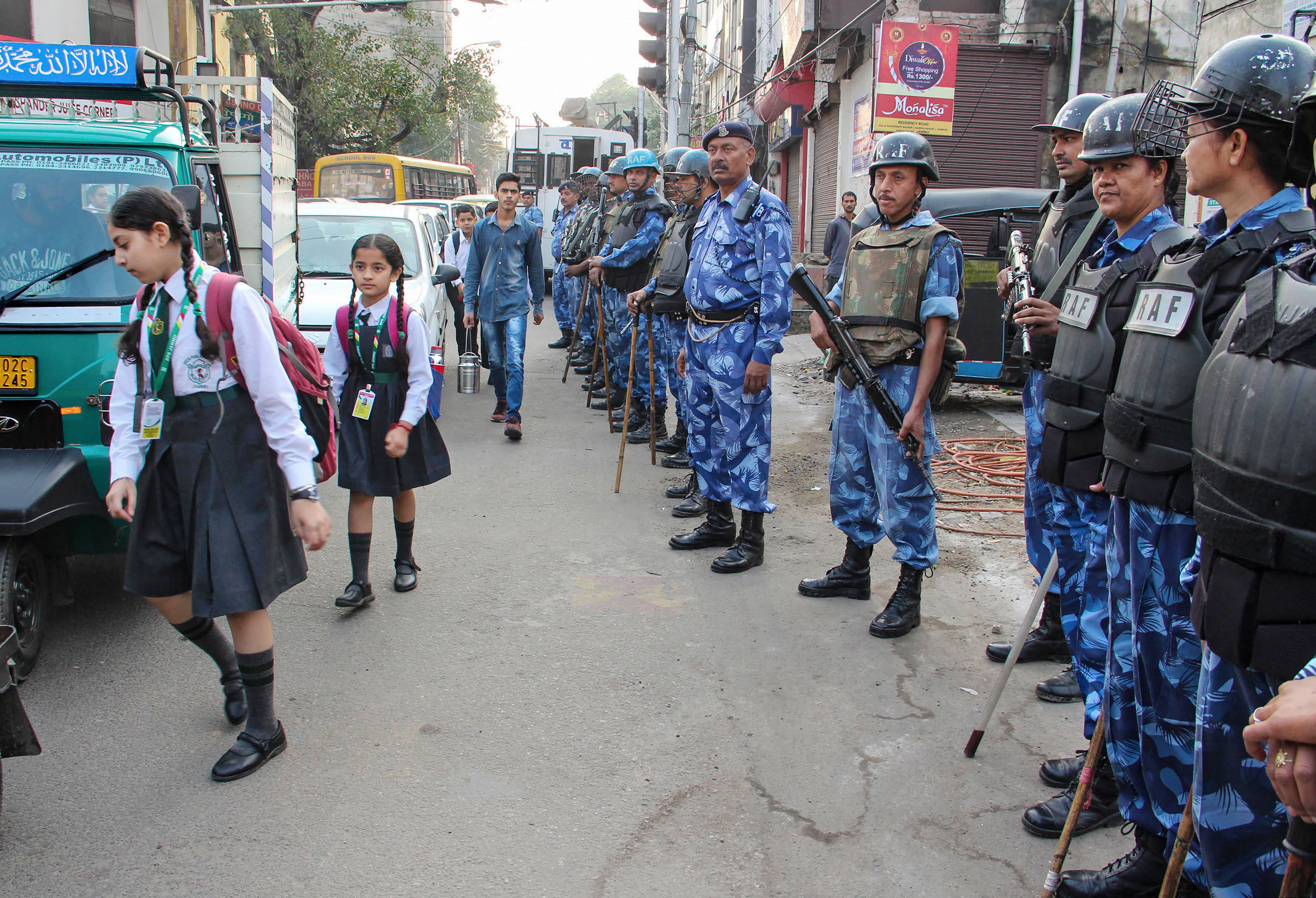
Ayodhya verdict: Restrictions imposed in entire Jammu & Kashmir

Officials said that restrictions were imposed in the entire Union Territory of Jammu and Kashmir on Saturday (November 9) ahead of the Supreme Court’s judgment in the Ayodhya land dispute case.
The apex court may pronounce the verdict in the Ram Janmbhoomi-Babri Masjid land dispute case at 10:30 am.
Officials said that restrictions under Section 144 of the CrPC (Code of Criminal Procedure) came into force in the newly-created union territory around midnight after the Director General of Police chaired a high-level meeting to review the security situation.
They said that adequate security measures have been taken to maintain law and order. The restrictions are in place as a precautionary measure, they added.
Residents said that policemen on vehicles fitted with public address systems made announcements before dawn informing people about the imposition of the prohibitory orders and closure of all educational institutions.
Also read: Constitution bench unanimous in its verdict, says CJI
Exams slated for Saturday have been deferred and the fresh dates will be announced, the officials said, adding that Saturday will be a dry day and no bursting of crackers will be allowed anywhere.
Chairing a high-level meeting in Police Control Room (PCR) here on Friday evening, DGP Dilbag Singh directed that religious places and places of worship must be protected and “any attempt to create any communal trouble must be neutralised with suitable advance action”, an official said.
“Pakistan is hell-bent on creating trouble and exploit any situation on the border as well as in the hinterland,” Singh had said and directed that the border, city and the highway grids must remain alert.
The DGP advised district authorities to discourage religious processions in sensitive areas. “The officers must work out their plans and implement them on the ground. There should be clarity of thought while devising plans and executing them,” the police chief said on Friday.
He directed the officers to take required action. Officials said adequate deployment has been made at vulnerable pockets. The DGP has also directed officers, particularly Senior superintendent of Police, to have meetings with their commanders.
(With inputs from agencies)


